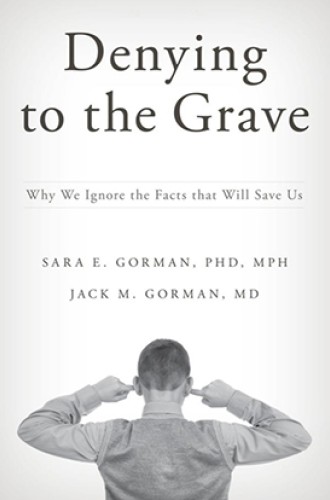What we need from scientists
It’s hard enough to distinguish fact from fiction. Then there’s the matter of interpretation.
A few notable people in places of public responsibility still believe that climate change is a hoax. Some people, harboring suspicions most have long since laid to rest, refuse to vaccinate their children. Way too many others, ignoring statistics that connect gun ownership to accidental deaths, keep guns where children might find them. And way too many still wrangle antibiotic prescriptions from doctors who know the dangers of antibiotic overuse and the futility of treating viral diseases with antibiotics. Antiscientific behaviors are dangerous and astonishingly common.
Sara Gorman, who holds advanced degrees in English literature and public health, and medical doctor Jack Gorman not only review the most accessible scientific evidence against several popular misconceptions but also consider the most common reasons why intelligent, educated people can be persuaded of positions that fly in the face of compelling scientific evidence. These reasons include the lure of charismatic leaders, the appeal of plausible and imaginative conspiracy theories, confirmation bias (the tendency to take in and interpret new information only in a way that confirms one’s already-existing beliefs), and a very human tendency to avoid complexity.
Read our latest issue or browse back issues.
I have to acknowledge my own susceptibility to all of the above. I was also grateful for the authors’ willingness to acknowledge the limits of scientific evidence. “In science we can never be 100% sure,” they write, though on some questions science can be “very close to totally sure.” They also acknowledge that emotional responses to perceived threats, which evolved to protect us, can be of practical use. Problems arise, though, when those “adaptive reactions are applied in maladaptive ways.”
Simply recognizing our proneness to fallacies doesn’t protect us from them. We are left with the task of discerning when our suspicions, our counterfactual hunches, or our fears might be justified. There are, after all, some actual conspiracies: Booth had a team behind him when he killed Lincoln. And sometimes the data really does bear out our hunches without the help of confirmation bias. What most of us need to distinguish fact from fancy is enough understanding not only of facts but also of scientific methods to assess plausibility. Data isn’t enough. All data needs interpretation.
To interpret data properly, to get beyond vague assertions about what “studies” show, we need guidance from good scientific popularizers—people who can simplify without dumbing down. “When scientists think about communicating with nonscientists,” the authors write, “they generally operate from the ‘knowledge deficit’ model, the idea that nonscientists simply lack the facts.” But the Gormans are convinced by research that nonscientists interested enough to pose questions are generally more competent than the experts think. Explaining how a vaccine works, offering a convincing alternative line of reasoning, or discrediting a charlatan is most effectively done by those experts who are able to imagine why one might buy into false premises or a flawed narrative.
We need those imaginative bridge-builders. Leaving science to scientists is dangerous—never more than now. An informed citizenry needs to know about good science, and it needs leaders who listen to scientists. As in the case of climate change, the earlier one is told the facts, the better. Unfortunately, the authors observe, “only after the false notions become imbedded in people’s minds does the scientific community mount any meager attempt to counteract it.”
This book is an appeal to both professional scientists and nonscientists to involve themselves in scientific conversations. Basic—and sometimes not so basic—scientific literacy is every adult’s prerogative and duty. Posing science as a threat to faith has had far-reaching negative consequences. So has the insidious notion that science can be made to serve profit (as some powerful climate-change deniers are currently demonstrating). The authors acknowledge that biased research can be bought. For that reason, all of us need to be “sober and watchful” as we consider the claims of infomercials and unidentified “studies.”
There are, of course, more things in heaven and earth than science can account for. But the things of this earth—when they are looked at through lenses, tracked, traced, counted, measured, and monitored—yield up a good many of their secrets to empirical method. If we miss those things, we are also surely less likely to be wise and discerning about the nature of their Creator.






